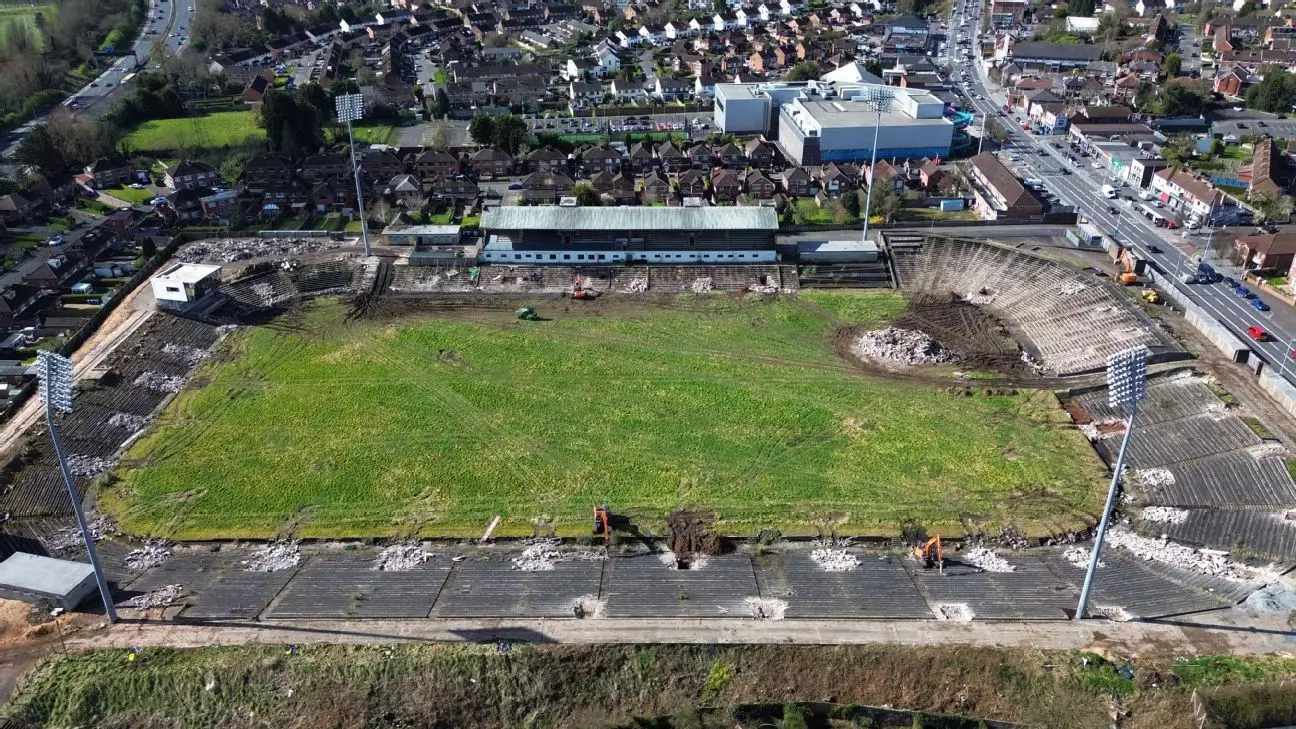The recent announcement regarding Northern Ireland’s exclusion from hosting matches at Euro 2028 marks a significant blow to the region’s sporting aspirations. The UK government’s decision to withdraw financial support for the overhaul of Casement Park, the proposed venue for five matches, has left many questioning the future of the stadium and the broader implications for Northern Ireland’s participation in high-profile international competitions.
Initially, the Casement Park reconstruction was ambitious, with original estimations of development costs around £180 million when the UK and Ireland bid was accepted. However, as expenses skyrocketed to an alarming £400 million, the UK government opted to withdraw its financial backing, citing an inappropriate risk-to-reward ratio. This development raises critical concerns about fiscal management and accountability within government expenditures. Stakeholders from various sectors must reflect on how such miscalculations can jeopardize opportunities for community engagement and national pride through sport.
The heart of Northern Ireland’s football culture traditionally lies within its local clubs and community. The rejection of Windsor Park, known as the historical home of Northern Irish football, as a Euro 2028 venue speaks volumes about the region’s infrastructure challenges. The ongoing neglect of Casement Park, abandoned since 2013, showcases what happens when essential sporting facilities fall into disrepair; a lost opportunity for local teams to host significant events that could invigorate regional pride and economic investment. The recent decision not only robs local fans of experiencing global football action but also raises concerns about the long-term sustainability of local sports venues.
In the wake of this disappointment, attention shifts to possible alternative venues spread across England, Scotland, Wales, and the Republic of Ireland. While this shows UEFA’s willingness to adapt, it highlights Northern Ireland’s isolation in the sporting landscape. Future collaborative efforts must be prioritized to ensure concrete support and funding for local sports infrastructure. This may require an innovative approach involving public-private partnerships or leveraging international funding to ensure that facilities like Casement Park are given the attention they deserve.
As Northern Ireland grapples with this setback, the onus now lies on regional government officials, sporting authorities, and community leaders to galvanize support for revitalizing local sporting infrastructure. A commitment to transparency, strategic planning, and community involvement will be essential in transforming the narrative from loss to opportunity. By investing in local facilities and encouraging grassroots sports development, Northern Ireland can rebuild not just its reputation but also its passion for football, ensuring that it remains a vibrant participant in the broader sporting community for years to come.

Leave a Reply